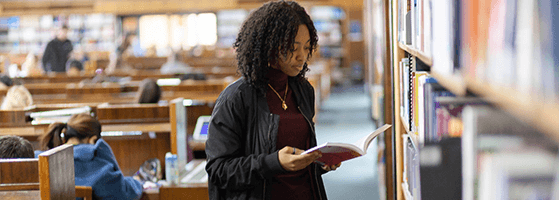18 August 2021
Reflections for the future: A student perspective

Author
Katie Williams
Bioscience student, University of East Anglia
In this blog, Katie Williams, a second-year Bioscience student at the University of East Anglia, describes how remote learning during the global pandemic has made her a more confident and proactive student, and which aspects of digital delivery she would like to see continue into the future.
Every day in my first year of university, I looked forward to lectures where I would get to see my friends and learn about new topics. However, in my second year, COVID-19 hit and had a vast impact on my learning and wider experience of university. At a recent School of Biological Sciences Teaching Theme discussion at the University of East Anglia, my bioscience lecturers invited students to engage with them and reflect on teaching during the pandemic and what each had learned from the different approaches taken and practices applied. From this discussion, it became apparent that many of the online teaching practices have had a positive impact on student engagement. Personally, I feel that the COVID pandemic has helped us to identify areas where teaching can be improved and what approaches are effective in achieving the best learning outcomes, which I will now explore.
One of the key points highlighted by staff during the discussion was the benefit of student anonymity achieved through online learning. This allowed questions to be asked and answered without students revealing their names. I felt that this aspect of online learning was great as when it comes to asking questions during in-person lectures, I’ve never been the most confident student. In my first year of university, I never once asked a question face-to-face. Fast forward to this year and I’m no longer the same student. Having the chance to ask questions anonymously has boosted my confidence and helped me to engage more in lectures, which has, in turn, benefitted my learning. I believe that retaining the option of responding to questions anonymously when we return to face-to-face teaching in the autumn, through chat boxes, writing on slides, Padlets or equivalent softwares, would be a great improvement to learning in physical spaces and continue to boost student confidence and engagement.
Laboratory practical classes were delivered online during full lockdown. While there were some positives to take from this experience, there were also drawbacks which I felt hindered my learning. I really liked that the online practicals allowed for lecturers to tell all students the same information simultaneously, rather than tiredly repeating themselves. This allowed students to ask questions and instantly get a response, and the entire chat room could also read that response. This was really beneficial to my learning and it provided all students with the same level of understanding.
I particularly liked it when lecturers delivered a pre-lab tutorial before the online lab session, as this allowed me to understand all of the concepts before seeing the practical application. This pre-lab covered the key techniques and methods of the practical in under an hour. This really helped me as I felt more comfortable when watching the live practicals as I knew what to expect and could therefore engage more, resulting in a better learning experience. In addition, focusing the information about the practical in a pre-lab session made it far easier to find, interrogate and understand when condensed into an hour lecture, rather than scattered across a three-hour practical. However, reflecting on the level of skills gained from completing practical labs online compared to in-person on campus, I believe that the latter was the more effective teaching method.
Although watching online practicals and conducting experiments at home were informative, they did not offer the same level of skills and understanding that I gained from face-to-face teaching with hands on experience. During my first year, pre-COVID, I was able to perform many assays and get familiar with basic lab protocols. However, spending some of my second year watching a lecturer perform these basic techniques many times became tedious and did not develop my laboratory ability. I feel that online practicals were definitely a helpful alternative teaching method during the pandemic, but I don’t believe my skillset has improved, only my confidence - which is still a positive!
I also discovered another valuable lesson when we first returned to in-person practical labs during the pandemic. When I work in a group, I tend to sit back and let my peers do most of the work for me. During COVID, however, we were not allowed to share equipment and had to maintain social distancing, so I had to do everything on my own. This form of independent learning forced me to use various types of equipment, which boosted my confidence and skillset over time. I feel that creating more opportunities for independent learning as well as group work - even if this means having fewer practicals as a result - would be very beneficial and I would like to see this change implemented in the future.
Reflecting on my experience as a bioscience student during the pandemic, I feel that COVID has had a positive impact on my learning. The choice to ask and answer questions anonymously should be made possible when face-to-face teaching resumes because it will allow those who aren’t as confident to engage more with the lecture. This really enhanced my learning and will encourage more students to share their thoughts with the lecturer and their peers and get involved. I also discovered the benefits of working on my own in lab practicals, gaining greater understanding of who I am as a learner and what I can achieve by being more proactive and challenging myself. Moreover, pre-labs before all practicals reduced my anxiety when working in labs on my own and I now feel much more confident as a result.
While the pandemic has presented us all with different challenges to overcome, it has also provided a valuable opportunity to reconsider how we learn and how to get the most out of our university experience. By taking small changes like these onboard, I think we can make a big difference to how students will learn in future.
